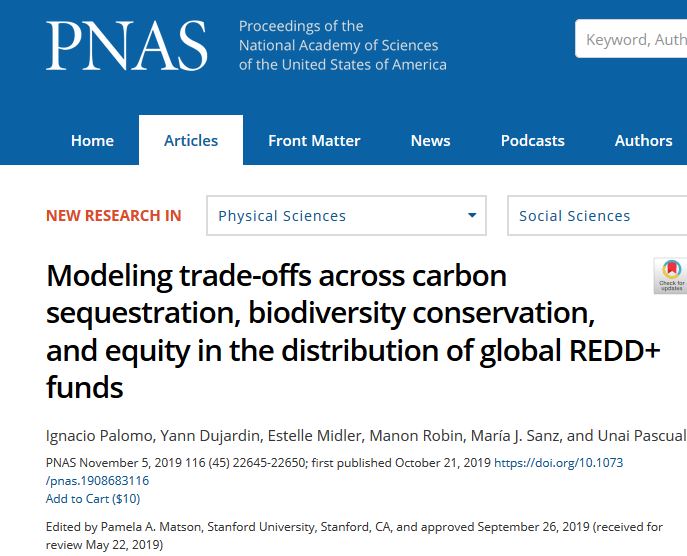11 azaroa, 2019
Published by BC3Research Ignacio Palomo Maria Jose Sanz Unai Pascual at 11 azaroa, 2019
The program on Reducing Emissions from Deforestation and Forest Degradation (REDD+) is one of the major attempts to tackle climate change mitigation in developing countries. REDD+ seeks to provide result-based incentives to promote emission reductions and increase carbon sinks in forest land while promoting other cobenefits, such as the conservation of biodiversity.
14 azaroa, 2019
Published by BC3Research Unai Pascual at 14 azaroa, 2019
Categories
The Basque Centre for Climate Change (BC3) in collaboration with the Institute for Environmental Technology Science (ICTA) (the Barcelona Lab for Urban Environmental Justice and Sustainability more specifically) at the Universitat Autònoma de Barcelona, (UAB) and the Green Lab of the Centre for Environmental Studies of Vitoria-Gasteiz City Council, offers a 3-year PhD research fellowship. The PhD position is part of a research project concerning the plurality of values of urban biodiversity.
15 azaroa, 2019
Published by BC3Research at 15 azaroa, 2019
Categories
El próximo 28 de noviembre tendrá lugar en Getxo la jornada “Gobiernos locales, costas, mares y cambio climático”, que organizamos junto con Euskal Fondoa y el Ayuntamiento de Getxo, con el objetivo de dar a conocer qué se está haciendo desde Euskadi para conservar los ecosistemas marítimos y costeros, tanto desde la Ciencia como desde las Administraciones públicas locales o la Cooperación. Contaremos para ello con expertas y expertos de BC3, el centro tecnológico AZTI, la ONG Medicus Mundi, o el propio Ayuntamiento de Getxo.
Do you like it?
19 azaroa, 2019
Published by BC3Research at 19 azaroa, 2019
Categories
Different lines of evidence suggest that divergence in plasticity plays a key role in adaptation to global environmental change. Many scientists argue that genetic variation in plastic responses to the environment (G × E) could be an important predictor of species' vulnerabilities to climate change. But there is not a general pattern among either experimental or theoretical studies. Plasticity acting at the level of the individual is considered a rapid mechanism for surviving under rapidly changing conditions. But plasticity can also retard adaptation by shifting the distribution of phenotypes in the population, shielding it from natural selection. We know that not all plastic responses are adaptive. I will illustrate some examples of ecological traps, and, for the case of plants, the paradoxical decision regarding roots that we are far from understanding and modelling. Plasticity may buy time for populations, but whether it will be enough, given the rate of environmental change, is unknown.
Do you like it?




